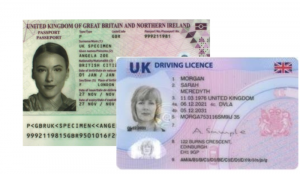Voter disenfranchisement and how to overcome it was discussed at Reigate and Banstead Borough Council Thursday 30th March as the authority wound up its business ahead of the May 4 elections.
The country goes to the polls in a little over a month amid the “biggest change to the electoral process in decades” as people will be required to present valid photo identification before casting their ballot.
Councillor Ruth Ritter, during questions from members at the March 30 full council meeting, asked what measures were in place to feed back on its impact on turnout.
She said: “At a time when voter turnout for local elections in Reigate and Banstead Borough Council was as low as 29 per cent in one ward last year and voters need to be encouraged to partake in democracy. Voter ID is the biggest change to the electoral process in decades, and it will affect voters in polling stations at the upcoming elections on May 4. It is therefore important that we have assurances that voters aren’t being disenfranchised by this significant change.
“With that in mind, will the returning officer be gathering data on how many people are unable to vote at polling stations due to not having appropriate ID so that this data can be fed back to national government?”
Last time the average turnout for the borough was 35 percent two power cent higher than the national leverage last year.
Responding was Mari Roberts-Wood, managing director at Reigate Borough Council whose responsibilities include increasing participation in elections.
She spoke of the “extensive communications about the massive changes to electoral law” and how the council had been targeting hard-to-reach groups such as younger voters and the elderly.
Ms Roberts-Wood said: “We can always do more and should do more and with the introduction of voter ID we need to do more than ever.”
Councils, she said, would also be collecting data from polling stations about the impact of the legislation and sending that to the electoral commission – who will be collecting the data centrally.
A report on its impact is expected to be published in November this year.
She said: “This data will include the number of voters who are essentially refused a ballot paper due to suspected forgery or impersonation, or they failed to answer the statutory required questions, they showed the wrong ID – there are 23 different types of ID that you can show on May 4. For those who don’t have one of those or don’t have any ID at all we will be collecting that data. Also recording those asked to show their ID in private and those who are refused a ballot paper but returned with a valid ID. We’re trying to capture as much as possible.”
She added that it was an “opportunity to collect a lot of data to understand the impact of these changes and hopefully increase our reach coming forward”.
Reigate and Banstead Council has a voter ID section on its website that people can use to ensure they can vote on May 4.
Related reports:
Image credit: Crown Copyright fair use and DVLA CC BY-SA 3.0


